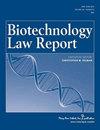临床试验和流行病研究的监管:在新冠肺炎危机期间坚持道德标准
IF 0.2
4区 生物学
Q4 BIOTECHNOLOGY & APPLIED MICROBIOLOGY
引用次数: 0
摘要
新冠肺炎疫情的迅速发展扰乱了社会的各个方面,包括医疗系统、供应链、经济和人际关系。公众、患者、重要人员和医疗保健专业人员的安全和公共健康是众多新出现的考虑因素之一。在一些地区,专注于治疗和预防冠状病毒感染的临床试验优先于专注于其他疾病的研究,临床研究也因患者护理的迫切需求而暂停或终止。必须迅速做出决定,由于对该疾病的了解和对其治疗(和预防)的理解有所增加,以及感染的强度和严重程度随时间和地点的不同而不同,因此需要灵活性和反思。为了改善未来的准备工作,本文解决了疫情期间决策中的道德困难和相互竞争的道德压力。在短时间内,医学界和科学界取得了突出进展。我们必须将迄今为止所学到的知识应用于“第二波”,如果出现,或者在没有第二波的情况下,应用于随后的疫情,以加快发展。要做到这一点,我们需要领导、准备和战略。需要全球合作,以使在一个地方获得的见解能够转移到下一个地方,并在传染性浪潮在各国蔓延时建立知识基础,而不是重新发明知识。要做到这一点,必须就共同的客观终点及其定义、不良安全事件的收集、电子数据采集和云计算、共享协议的承诺、同意书以及记录个人症状、合并症、人口统计学和非人口统计学特征的共同术语和方法达成一致。本文章由计算机程序翻译,如有差异,请以英文原文为准。
Regulation of Clinical Trials and Pandemic Research: Upholding Ethical Standards During a COVID-19 Crisis
Every element of society was disrupted by the rapid development of the COVID-19 pandemic, including the healthcare system, the supply chain, the economy, and interpersonal relationships. Safety and public health of the general public, patients, essential personnel, and healthcare professionals were among the numerous emerging considerations. Clinical trials focusing on the treatment and prevention of coronavirus infection were prioritized over studies focusing on other diseases in some regions, and clinical research was halted or terminated in deference to the pressing demands of patient care. Decisions had to be made quickly, and flexibility and rethinking were required due to the fact that knowledge of the disease and understanding of its treatment (and prevention) increased, as well as the fact that the intensity and severity of infection varied over time and by location. In an effort to improve future preparedness, this paper addresses the ethical difficulties in decision-making and competing ethical pressures during the epidemic. In a short period of time, the medical and science communities have made outstanding progress. We must apply what we have learned thus far to a "second wave," should one occur, or, in the absence of one, to the subsequent pandemic, in order to accelerate development. To do this, we need leadership, preparation, and strategy. Global collaboration is required to enable insights obtained in one location to be transferred to the next and to build upon knowledge rather than reinvent it as the wave of infectiousness spreads across nations. For this to happen, there must be agreed-upon common, objective endpoints and their definitions, collection of adverse safety events, electronic data capture and cloud computing, commitments to share protocols, consents, and common terminologies and ways of recording symptoms, co-morbidities, demographic and non-demographic characteristics of the individuals.
求助全文
通过发布文献求助,成功后即可免费获取论文全文。
去求助
来源期刊

Biotechnology Law Report
工程技术-生物工程与应用微生物
CiteScore
0.30
自引率
0.00%
发文量
31
审稿时长
>12 weeks
期刊介绍:
The leading authoritative journal since 1982 devoted to the evolving body of law and government regulation concerning biotechnology, particularly in the industries in which new products from these technologies are developing the most rapidly: pharmaceuticals, chemicals, agriculture, food processing, energy, mineral recovery, and waste treatment. All legal aspects are rapidly reported, and critical and often hard-to-obtain documents are reproduced.
 求助内容:
求助内容: 应助结果提醒方式:
应助结果提醒方式:


